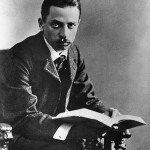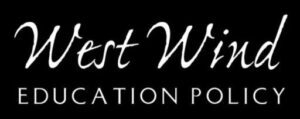
I just came across some quotations by the poet Rainer Maria Rilke (1875-1926), one of the great 20th century German language poets. His writing often gives me a fresh way to think about ideas I have been wrestling with. Perhaps these quotations will give you pause to think more deeply about something on your mind.
“Believe that with your feelings and your work you are taking part in the greatest; the more strongly you cultivate this belief, the more will reality and the world go forth from it.”
Rainer Maria Rilke
This quote causes me to wonder how policy makers in partnership with educators can establish a culture where teachers and leaders believe they are doing great things. Policy discussions today are largely about how to create systems that are able to accurately and fairly measure teaching practices to expose poor work and hopefully also shine the light on some great work. A lot of energy and research is being expended to cull out the weakest professionals and either remove them or provide them with rehabilitative training to put them back into the classroom with improved practices.
Will these policies and the related practices create beliefs among educators that they are taking part in something greater than themselves, that they are highly skilled or have the capacity to become highly skilled as practitioners, and that they are perceived as valued and respected individuals? It is too soon to tell. Will the models and programs be evaluated for efficacy as closely as the teachers (and principals) are being scrutinized? Will the project evaluation data tell us about the number of skilled teachers and administrators who leave the profession prematurely because they are not satisfied with the working culture? We know that individuals under stress are less likely to learn and retain knowledge and skills. Will data be analyzed and shared back with the teachers in formative ways that refine their professional growth? Will the project evaluation data show how teachers’ motivations to learn new knowledge and skills are affected by evaluation processes? Will processes be efficient enough that they complement rather than compete with existing or potential processes that build teachers’ repertoire and motivation, such as action research, well designed professional learning communities, and collective work among faculties to study student data and adopt new practices?
Rilke also is quoted to say, “Live your questions now, and perhaps even without knowing it, you will live along some distant day into your answers.” Just as education reform is complex, the questions raised above are complex and will require thoughtful ongoing inquiry at the national, state, district, school, and classroom levels. Lessons learned must inform implementation strategies and future policy decisions. I believe that approaching the work as an authentic inquiry would take the profession a long way. Living our questions in a way that deeply challenges our theories of action and examines the intended and unintended outcomes would be a big step toward “taking part in the greatest.”
